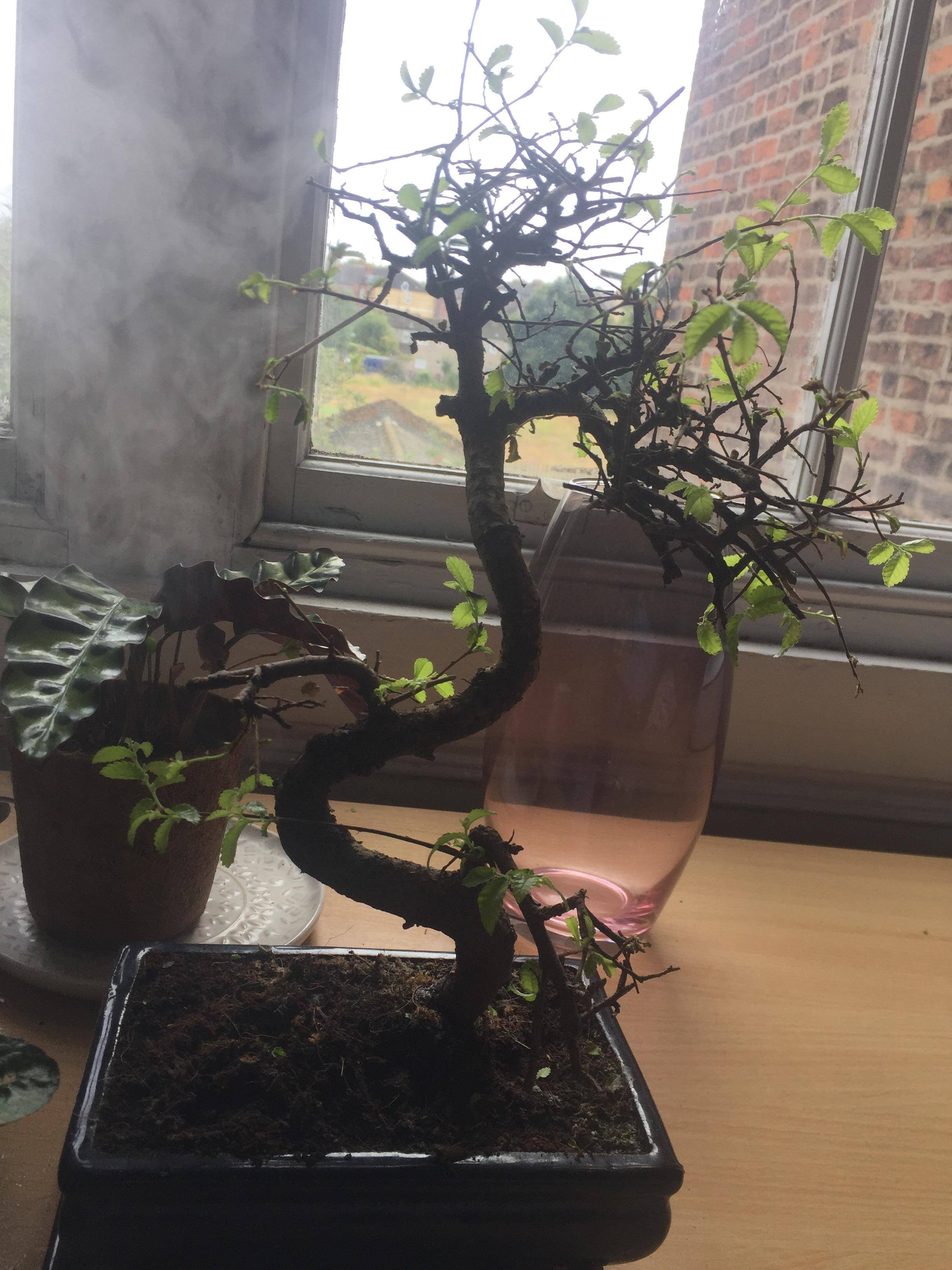I think You'll find that it's a Chinese Elm (Ulmus parvifolia) The Zelkova or Japanese Elm has slightly pointier leaves... although this is merely from observing your photo!
Location changes can effect your bonsai along with changes in lighting, temperatures, watering schedules and fertilizing can stress a tree. The way they show you that they are stressed is by shedding leaves, usually they'll turn yellow first but not always.
However the Chinese Elms are very resiliant trees and can recover better than most other species with a little care.
Keep the tree next to a light source ideally a south or west facing window (early morning or evening sunlight is best as it's not so harsh) but sunlight is very important!
Water as required not daily, weekly or to any schedule. Make sure not to over water it remember roots need oxygen or like us they will suffocate. Make sure the soil is damp not sodden or the roots will rot (this is a slow killer)! Water only when the soil starts to dry below the surface you can check this by pushing the tip of your finger about a centimeter into the soil (or get a fairly cheap water meter), if it's dry then water if damp repeat the process the next day and so on... from the picture you posted it looks like you have a water retentive soil so remember not to over water!
If the tree recovers well enough think about repotting it with a free draining soil (In early spring as the buds swell, And never a sick or stressed out tree if you can avoid it)... Chinese Elms will grow in almost any medium but at least this will mean you're less likely to overwater them!
Finally fertilizing a stressed out tree is a sure way to make it worse let it settle into it's new surroundings it'll tell you when it's happy with new buds bursting all over then fertilize, once every 2 weeks in the growing season which is March through to the end of September here in the UK, with a good bonsai fertiliser (it's good practice to just give the tree a watering prior to fertilizing as this prevents the fertilizer burning the fine roots if they are dry)!
Just as a pointer although most people enjoy the thought of having bonsai trees as house plants, Chinese Elms are trees and as such thrive outside in the natural environment. I've grown them indoors and outdoors and although they are one of a few species that can survive indoors, they will never grow as well as their outdoor counterparts with both health and vigour. Unless that is you can recreate their ideal micro climate indoors.
Fingers crossed your bonsai settles in and grows well. Good news is that from your photo it looks like there is fresh growth, so don't panic or fuss over it too much or it'll continue to stress out, keep a watchful eye on it and tend to it as and when it's needed. It'll do the rest, as mentioned before they are one of the more forgiving bonsais and do bounce back.
Remember in bonsai you will inevitably kill a few trees the trick is to learn from this and if you enjoy it keep going! It's well worth it. Good luck!

